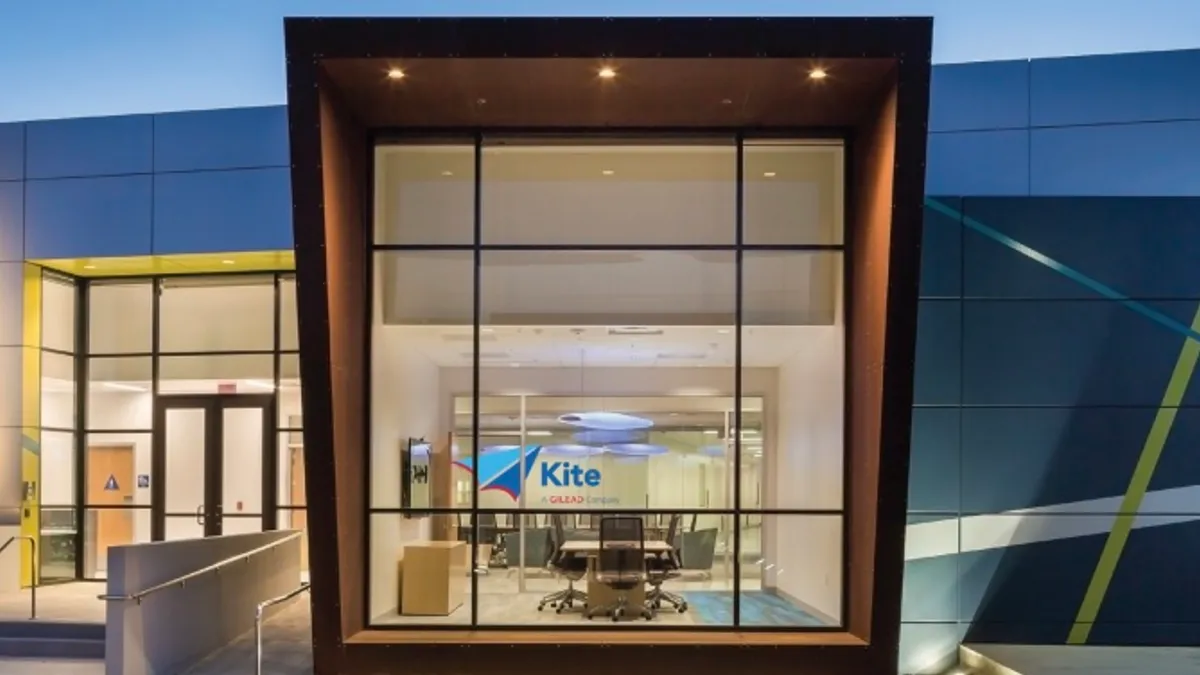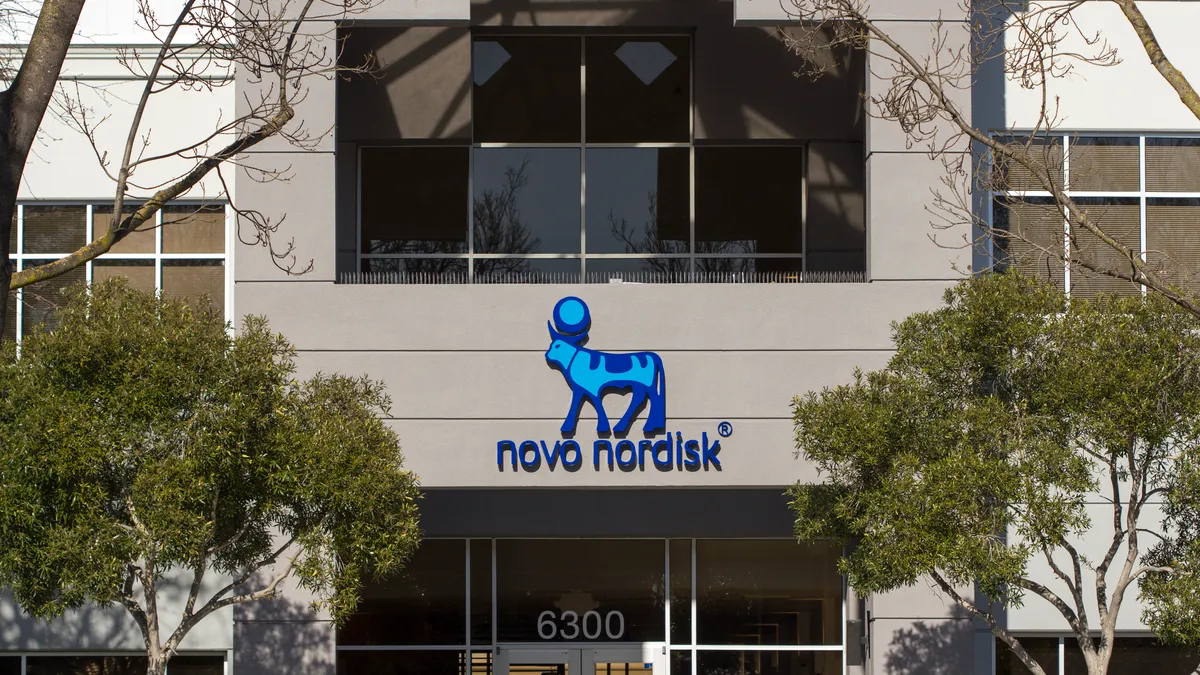For patients in need of revolutionary CAR-T cell therapies, time is not a luxury. And even though they offer a shot at a cure, the time it takes to manufacture a treatment can be a matter of life and death.
To speed delivery of its personalized immunotherapy Yescarta, Kite Pharma recently got the FDA to sign off on a new manufacturing process that will shave two days from its median turnaround time.
“It’s really exciting because these patients have an aggressive disease, and every day matters,” said Cindy Perettie, executive vice president at Kite, which is a part of Gilead Sciences.
The manufacturing process for CAR-T therapies is complex. It starts by extracting the patient’s white blood cells, which are then modified to produce surface proteins called chimeric antigen receptors that help immune cells target the patient’s cancer. It takes upwards of 18 people to carry out the various manufacturing steps, Perettie said.
“There’s this sense of urgency. Every patient matters. Every day matters."

Cindy Perettie
Executive vice president, Kite Pharma
Kite officials expect it will now take around 14 days from a patient’s cell collection to infusion — a reduced timeline that not only helps patients, but gives the company an edge over competitors. It may also position the lymphoma therapy to withstand competition from a crop of “off the shelf” allogeneic treatments working their way through the pipeline, said Perettie. Allogeneic treatments use donor cells to create a less expensive option that don’t require cell collection from the ill patient, but can trigger an immune reaction, which has hampered development.
Even with an off-the-shelf option, patients can still wait weeks for a scheduled treatment, and Kite aims to further whittle down the turnaround time, Perettie said.
“There’s this sense of urgency. Every patient matters. Every day matters. And that's allowed us to get to this industry-leading manufacturing turnaround time and we're not going to stop here,” Perettie said. “We have another set of efforts ongoing and I hope by the end of the year, we're able to announce again that we can shorten it even further.”
Innovating next-gen approaches
Gilead acquired Kite in 2017 for $11.9 billion to bolster its market position in cell therapy. Perettie said the deal gave Kite the best of both worlds, allowing it to remain separate but giving it access to Gilead’s extensive resources. The company kept its singular focus on CAR-T, sparing it from having to make portfolio tradeoffs that detract from its mission.
“We have the opportunity to solely focus on CAR-T, and I think that has allowed us to serve more patients,” she said. In addition to Yescarta, Kite has a second approved CAR-T therapy, Tecartus, for patients with relapsed or refractory mantle cell lymphoma and acute lymphoblastic leukemia.
“This is a potentially curative therapy for almost half of the patients. It’s insanity to me that we’re unable to reach more patients."

Cindy Perettie
Executive vice president, Kite Pharma
To date, Kite has treated more than 19,500 patients with its CAR-T therapies. The goal now is not only speed but broadened access. Currently, only 2 in 10 American patients who could benefit from CAR-T get the treatment, Perettie said.
“This is a potentially curative therapy for almost half of the patients. It’s insanity to me that we’re unable to reach more patients,” she said.
Because CAR-T treatments are only administered in authorized facilities — there are 135 in the U.S. and 400 worldwide — oncologists sometimes don’t offer it. Most authorized centers are academic medical centers, but the majority of people with cancer — 70% to 80% are treated in community practices, Perettie said.
Kite is building partnerships with hospitals that are affiliated with community oncology practices to give more patients access and to encourage treatment referrals.
New disease targets
Kite officials also want to improve their existing CAR-T treatments and broaden their applications.
“The last five years have been absolutely amazing,” Perettie said, adding that the company aims to maintain its market leadership and serve more patients.
“Part of that has been focused on expanding both our Yescarta and Tecartus labels so that we can move into earlier lines,” she said.
Data shows survival rates rise when the treatment is started sooner, possibly because harvested cells and the patients are healthier, so gaining approval to start treatment earlier is a goal.
Kite is also working to improve its existing therapeutics and is exploring three modified versions of Yescarta aimed at improving safety and efficacy, Perettie said.
“We have three constructs that are in phase one right now and we're going to pick the winner at the end of the year, and rapidly advance it,” she said. “The early data looks quite promising.”
CAR-T therapy safety recently got additional scrutiny when the FDA moved to require a black box warning on CAR-T treatments to alert patients that they may trigger secondary T cell cancers. Perettie said this is something the company will monitor, but so far, hasn’t seen evidence its drugs triggered T cell malignancies, and the risk of these cancers appears to be lower in CAR-T than from traditional chemotherapy.
Initially there were some concerns the FDA warning would scare patients from taking these treatments.
“But we haven't seen that,” Perettie said.
She does see room to expand CAR-T to other areas.
“We’re also doing a lot of work in solid tumors and beginning to look at autoimmune approaches,” Perettie said, pointing to compelling data related to autoimmune diseases.
“We’re seeing patients with highly refractory diseases like lupus, myositis and multiple sclerosis having profound responses from CAR-T,” she said.
The company also recently inked a $285 million deal with Arcellx to exercise its rights to the ACLX001 ARC-SparX program and expand into multiple myeloma, which affects about 180,000 patients in the U.S.
“We expect to have pivotal data at the end of this year,” she said.
About 20% of multiple myeloma patients are Black, so the company is working to ensure that clinical trials enroll the right mix of people and to establish treatment centers in communities with the greatest need, Perettie said.
“Our purpose really is about using that singular focus to advance care for patients and making sure that we have a transformative option,” Perettie said.

















